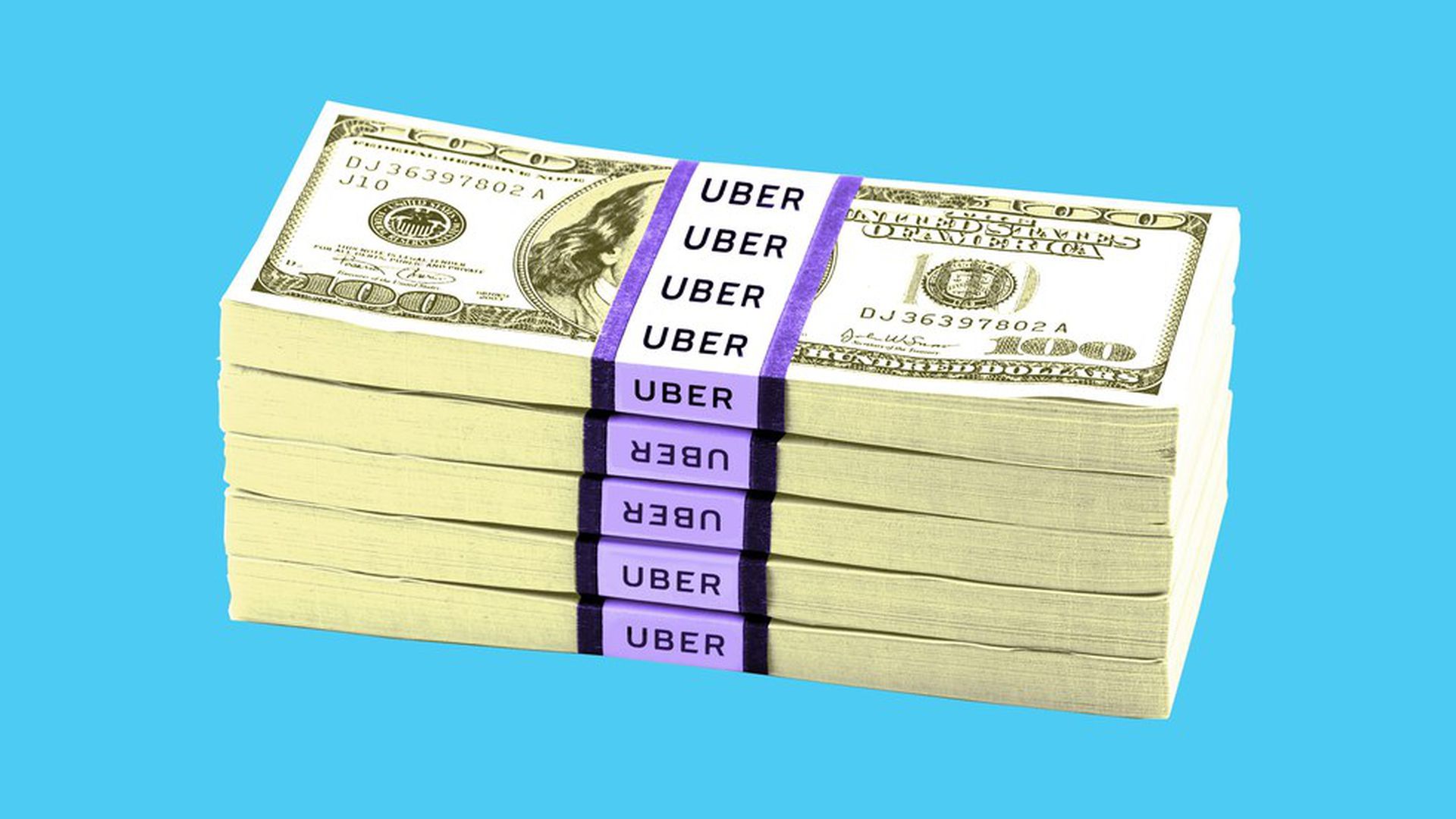Uber is burning smaller bags of money

- Kia Kokalitcheva, author ofAxios Pro Rata

Illustration: Lazaro Gamio / Axios
Uber continued to shrink its losses in the first quarter of 2018, according to financial documents the company shared with Axios. It also is launching a stock tender offer for early employees and investors, at an implied valuation of $62 billion.
Why it matters: Uber wants to go public in 2019, so getting at least close to profitability is of paramount importance.
Top line: $2.5 billion in net revenue in Q1 18, up 67% from a year ago and a 7% increase over Q4 2017. Gross bookings, which includes ride charges earned by drivers, climbed to $11.28 billion.
Bottom line: Adjusted pro forma EBITDA loss of $304 million, down 49% from a year ago and 36% from Q4 2017.
- On a GAAP basis, Uber actually generated $2.5 billion in profit during the quarter, thanks to one-time gains from its sales of local operations in Southeast Asia (to Grab) and Russia (to Yandex).
Balance sheet: Uber reports $4.7 billion of cash and $3.1 billion of long-term debt, as of March 31. Overall assets are listed at $19.4 billion, while overall liabilities are at $11.67 billion.
Accounting changes: Starting this quarter, Uber reclassified a portion of its ride-hailing revenue.
- Now, when it overestimates a fare (drivers are paid based on final distance and time, while fares are quoted upfront to riders), the difference will be categorized as contra-revenue rather than as gross bookings, similar to when Uber underestimates a ride and has to over-compensate the driver.
- It's also reclassifying promotions for specific customer groups in a market as operating expenses, rather than contra-revenue.
Secondary sale details:
- The tender is for between $400 million and $600 million at $40 per share, compared to $32.96 per share in last year's tender to SoftBank.
- Buyers include new investor Coatue Management, which also holds stakes in Lyft, Grab and Didi Chuxing. Existing investors Altimeter and TPG are also participating.
- To be eligible, employees must hold at least 1,000 shares (down from 10k minimum in SoftBank tender). They then can tender up to 25% of their total shares or $10 million, whichever is less.
- Employees will get a preference over outside investors if the tender is oversubscribed.